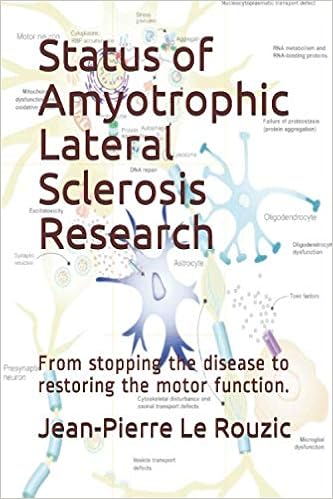Biogen announced the first results of its pivotal phase 3 VALOR study in tofersen (BIIB067), an experimental antisense oligonucleotide (ASO) under evaluation for people with amyotrophic lateral sclerosis (ALS) who carry a mutation on the SOD1 gene.
The results are depressing.

The VALOR study showed that there was no slowing of disease progression, as measured by the overall score of the ALSFRS-R scale.
However, improvements have appeared on specific points or technical aspects.
In particular, the therapy has achieved its technical goal, although this does not translate into clinical terms. The production of SOD1 protein was indeed reduced, as differences were observed between the Tofersen and placebo groups of 38% and 26% in the faster and slower progressing populations respectively.
Regarding the baseline value of the plasma neurofilament light chain (NfL), a potential marker of neuronal degeneration, differences were observed between the tofersen and placebo groups of 67% and 48% in the more rapidly progressing populations. and slower respectively.
In the fastest growing population, respiratory function evolved somewhat slower than expected (SVC); difference of 7.9%). This is also the case for muscle strength.
However, serious neurological events have been reported in one in twenty patients receiving Tofersen, including 2 cases of myelitis (2.0%). One death was reported in the Tofersen group in the VALOR study, which was determined to be unrelated to Tofersen.
Tofersen binds to SOD1 mRNA, allowing its degradation by RNase-H1 to reduce the synthesis of mutant SOD1 protein production.
The idea that the production of a mutated gene should be reduced is very common among biologists, but it is medically counter-intuitive. Indeed our genes would not have been constantly selected through a billion year if they were useless, and if we could put them "KO" without serious consequences. SOD1 is a gene that is essential for survival. It is present in most organisms. So it's not surprising cases of myelitis appear when SOD1 production was inhibited. It happened as well in other clinical trials.
Moreover, an ASO is only effective for a certain type of mutation, but there are more than a hundred known mutations for SOD1, some with very rapid progression, others on the contrary almost harmless.
If the problem was due to a "gain of function" of the mutated protein, then it was not enough to reduce its production, it had to be corrected, or to increase the production of SOD2. Even the key 1993 article on SOD1 involvement in ALS suggested something similar.
Hopefully this failure will trigger a global strategic reflection at Biogen, which has stopped all research on ALS in general a few years, to concentrate on ALS subsets deemed (at the time) less risky through licenses with Ionis Pharmaceuticals.
This failure is not only that of an ALS therapy, it is the overall failure of research on neurodegenerative diseases which is unable to produce results despite colossal investments (more than 500 unsuccessful clinical trials for ALS, nearly 2,500 unsuccessful clinical trials for Alzheimer's). These numbers are dizzying and insane.

